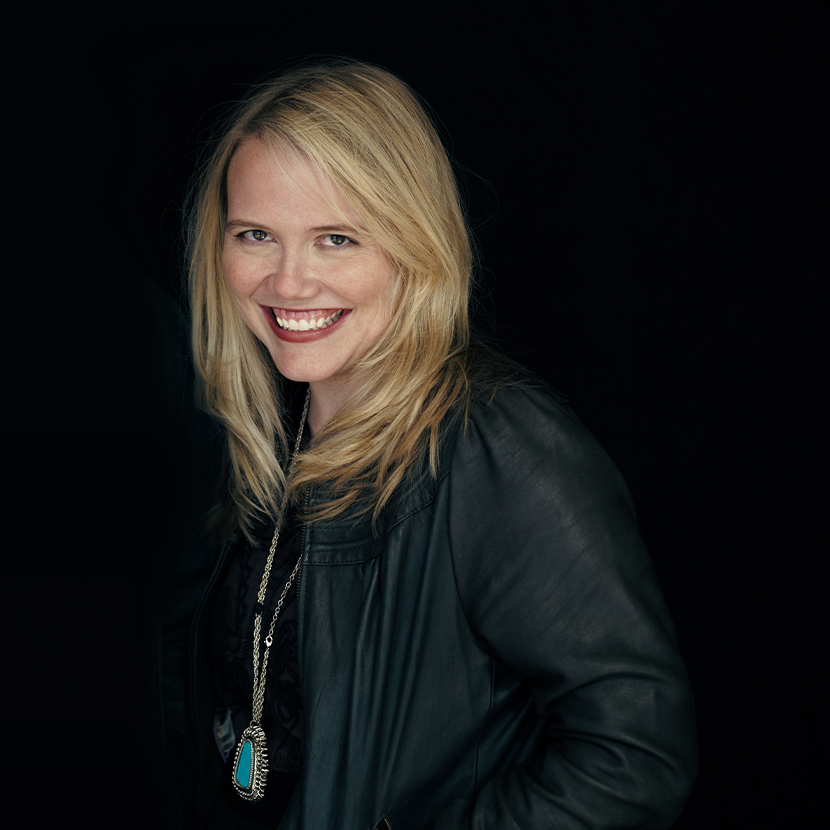Maya Smart is a literacy advocate who is shifting the conversation around reading fluency for young readers. As a parent educator and the author of Reading for Our Lives: A Literacy Action Plan from Birth to Six, she is dedicated to empowering parents to be their children’s first and most influential teachers. Her work is driven by a passion to address the crucial early years of reading development, ensuring that every child has the opportunity to become a confident and fluent reader. Maya holds a master’s degree in journalism from the Medill School at Northwestern University and a bachelor’s in social studies with honors from Harvard University. She serves as affiliated faculty in Educational Policy and Leadership in the College of Education at Marquette University.
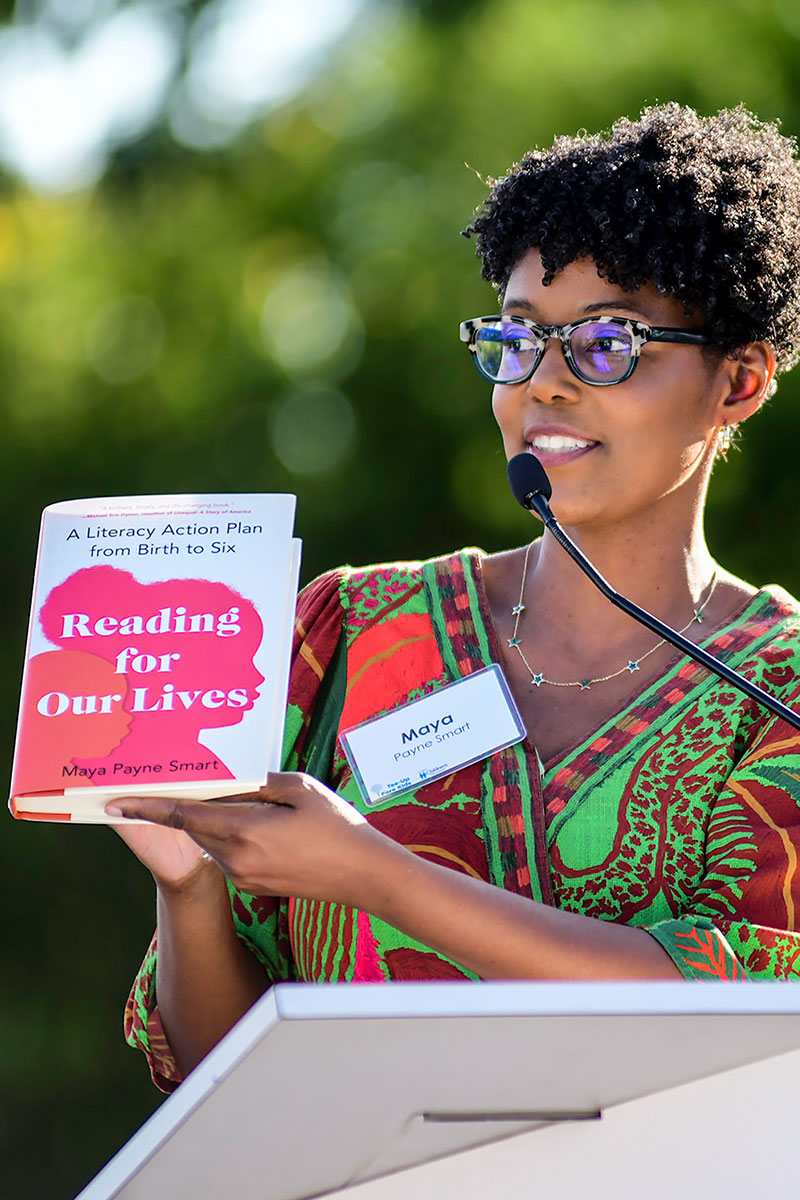
Maya giving a speech for Children’s Wisconsin Hospital, “an organization that understands the critical importance of early literacy and its impact on long term health and wellbeing,” she says. “I travel from coast to coast sharing why reading matters and how fostering literacy for all takes all of us;” photography courtesy of Children’s Wisconsin.
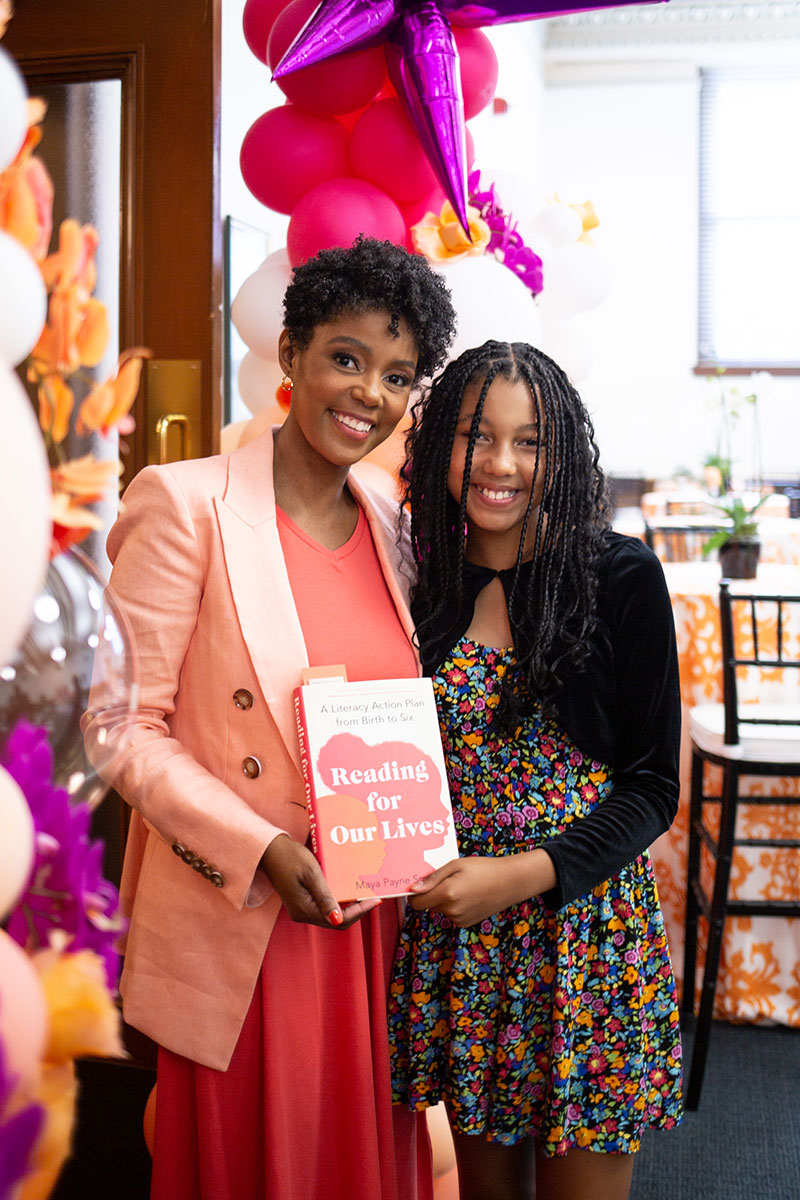
“I’m named after Maya Angelou, and my husband and I named our daughter after Zora Neale Hurston. My book, Reading for Our Lives, is dedicated to our Zora,” Maya says; photography by Colleen Kubiak.
You are on a mission to help parents raise fluent readers. When did this become a passion for you?
I became passionate about helping parents raise readers when my daughter was very young. I’d read heartbreaking articles about reading disparities between Black children and white children, Hispanic children and white children, and lower-income and higher-income households. I knew that these gaps reflected reading performance on average among the groups — not some inherent difference in children’s capacity to succeed. I took the awful statistics as a personal challenge to research what drives reading success and share what I learned, so that every parent of every child could be well-informed to raise their readers. We can’t rely on schools alone to teach reading, because the necessary brain infrastructure mostly develops in the first years of a child’s life, which is also when the seeds of motivation to read are planted. More than ten years later, I’m still digging into the topic and sharing my findings via blog posts, newsletters, speeches, and my book, Reading for Our Lives: A Literacy Action Plan from Birth to Six.
What is your earliest memory of discovering that you had the joy of reading?
My earliest tastes of bookish freedom, excitement, and exploration came as a young child roaming the aisles of the Ayres Branch Library in my hometown of Akron, Ohio. For me, the brick library, a former residence, on West Market Street was a cozy haven. It was small enough and the librarians familiar enough (one lived on my block) that I could immediately separate from my mom, hang a right into the children’s section, and wander the stacks to pick my next read. The autonomy of browsing, choosing, and reading in the library was a novel experience at that age. That power of self-direction, alongside strong reading skills, made it easy for me to fall in love with books. In every other setting, my options and actions felt limited, prescribed. But in the library, I felt independent. And with books, I could go anywhere — and did.
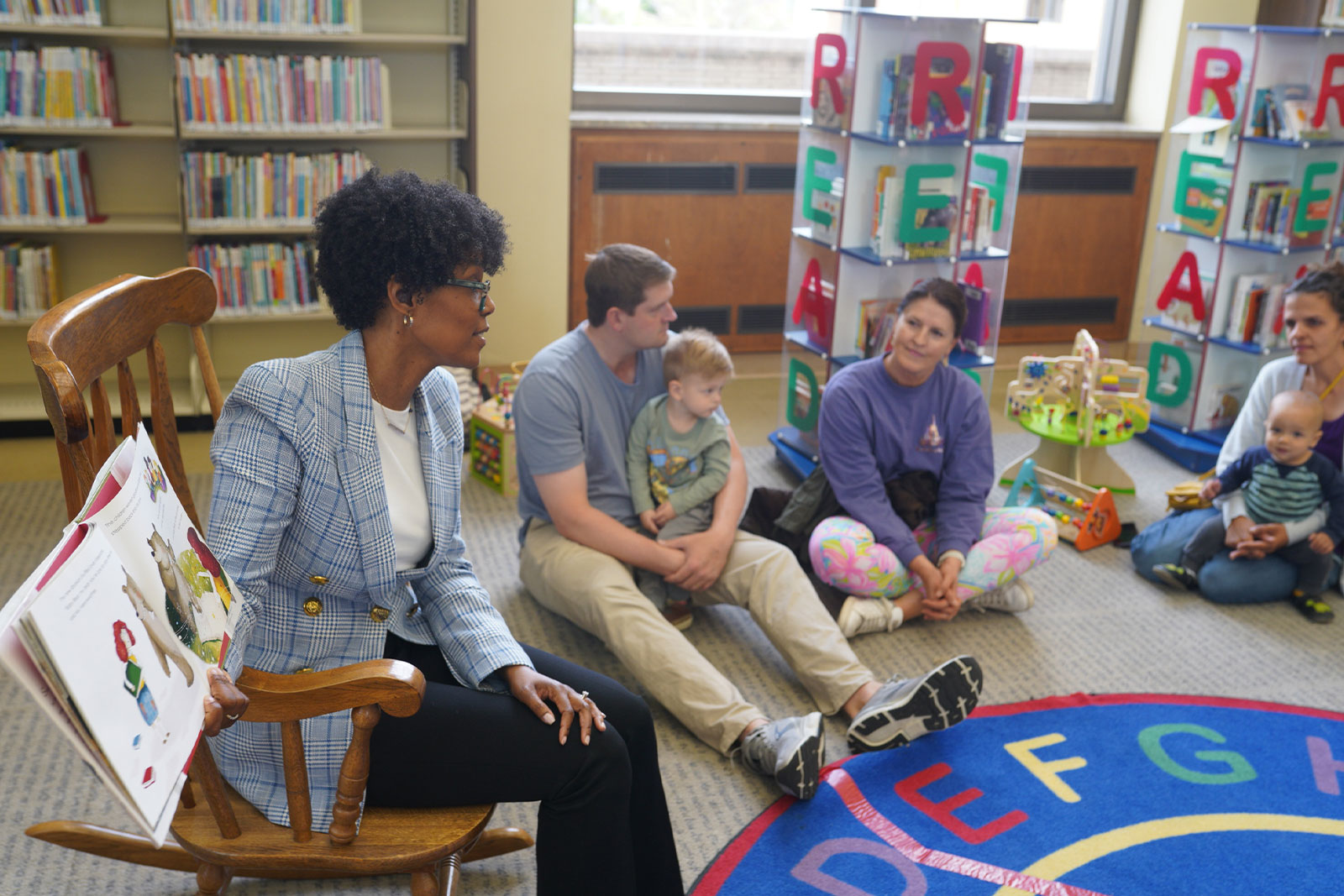
Deep reading for me means the luxury of long stretches of uninterrupted time with my books and the freedom of circling and underlining and scribbling in the margins. It’s also the richness of reflection and privilege of focus to forge my own understandings and ideas.
What are some of the most special books that you share with your daughter/your family?
My daughter is a tween now and a skilled, fluent reader who can tackle long novels and dense academic text on her own. But I still find myself gravitating toward picture books to share with her. The combination of elegant prose and gorgeous illustration continue to convey the affirmation, courage, and conviction that I treasure in books, even as she grows older. Most recently I bought her a copy of Black Gold by Laura Obuobi, illustrated by London Ladd. The story of the creation of a child of the universe — “rich, dark, and full of everything that gives life” — reads like an answered prayer.
If kids are swimming in stories, reading may stand a chance against screen time.
We love how you say you split your time between ‘deep reading and slow writing.’ What does deep reading look like for you personally?
We live in really distracting times, when the pressures of work and household duties make us feel like we don’t have time for leisure or the capacity to just sit and rest. I protest that thinking every day by starting my morning with a book and a cup of Richmond Blend Tea from Rostov’s Coffee and Tea in Virginia. It’s been my ritual for years, across state lines and life phases. Deep reading for me means the luxury of long stretches of uninterrupted time with my books and the freedom of circling and underlining and scribbling in the margins. It’s also the richness of reflection and privilege of focus to forge my own understandings and ideas.
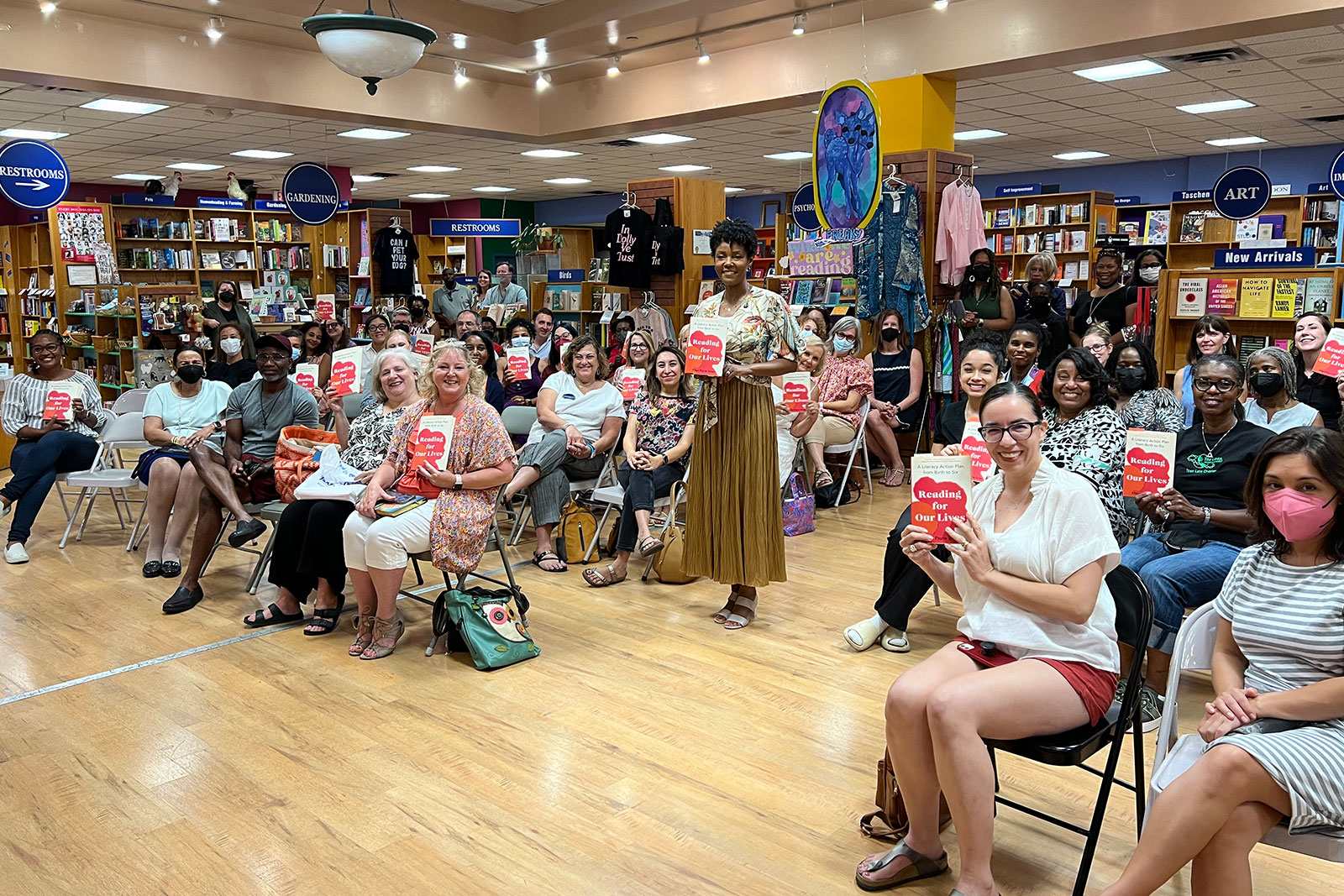
What are some of the key strategies parents can use in their busy, daily lives to foster a love of reading in their children?
Parents can foster a love of reading in their children in two key ways. First, let’s make sure kids have the language and literacy skills necessary to read with fluency and understanding. Because let’s face it, reading just isn’t loveable if you have to wrestle with every word. Second, and here’s the fun part, parents should flood kids with a steady stream of the most interesting, exciting, curiosity-spurring books they can find to entice them to spend more time turning pages. If kids are swimming in stories, reading may stand a chance against screen time.


